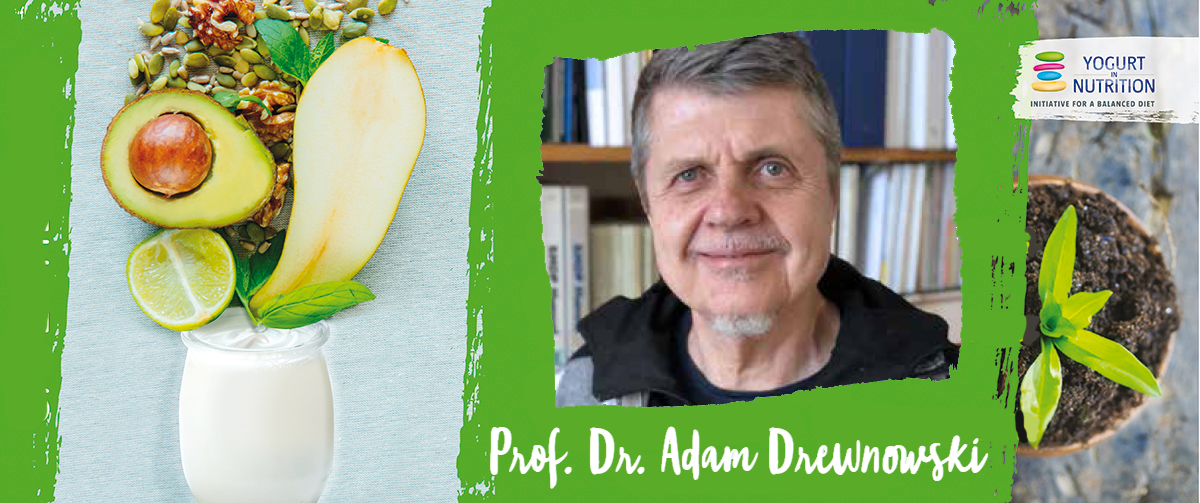YINI experts will gather during ASN annual meeting, Nutrition 2019, to be held in Baltimore (USA), in June 2019. The symposium, organized on Monday June 10th at 7:00 AM, will be on “Sustainable diets”. Before following the symposium live on twitter, we invite you to meet the speakers.
Prof. Dr. Adam Drewnowski
Prof. Dr. Adam Drewnowski is the Director of the Center for Public Health Nutrition at the University of Washington.
He obtained his MA degree in biochemistry at Balliol College, Oxford University, and PhD in psychology at The Rockefeller University in New York. Author of the Nutrient Rich Foods Index (NRF), a nutrient profiling model that measures nutrient density of individual foods, meals and composite food patterns.
Recently Dr. Drewnowski has worked on Future 50 foods for healthier people and a healthier planet and he is also the PI of the Seattle Obesity Study (SOS), funded by the National Institutes of Health. The SOS has explored the socioeconomic determinants of health, focusing on access to healthy foods. Using geographic information systems data and geopositioning tracking devices, the SOS has explored where people shop, what they buy, and how their food purchases affect their health and well being.
Dr.Drewnowski has authored over 300 research publications and advises governments, foundations, and the private sector on issues related to diets and health.
Learn more about Adam Drewnowski
During the symposium, Prof. Drewnowki will focus on the new data available about Sustainable diets.
Healthy Diets from Sustainable Food Systems: What Does New Research Show?
The four domains of sustainability have been defined as health, economics, society and the environment. The food supply needs to produce foods that are nutrient rich, affordable, socially acceptable and appealing – and with low impact on the environment.
Each of the sustainability domains has its own metrics and measures:
- Nutrient density of individual foods and food patterns has been measured using nutrient profiling (NP) tools.
- Affordability can be measured in terms or energy or nutrients per unit cost, often in relation to consumers’ purchasing power.
- Measuring the social value of foods is a more complex issue, and can include attitudes and beliefs not to mention perceived pleasure and social context of eating.
- Finally, environmental impact of diets has been measured in terms of land, water and energy use associated with food production, distribution and retail.
The current research has focused on protein as a resource-intensive nutrient. Protein quality is being integrated, for the first time, into NP models. Whereas animal-source proteins account for 66% of total protein in high income countries, that may change with the advent of plant-forward diets.
In order to optimize diet quality at a given price point while minimizing its environmental impact, some tradeoffs will need to be made. The creation of new metric measures and models critically depend on high quality data.



